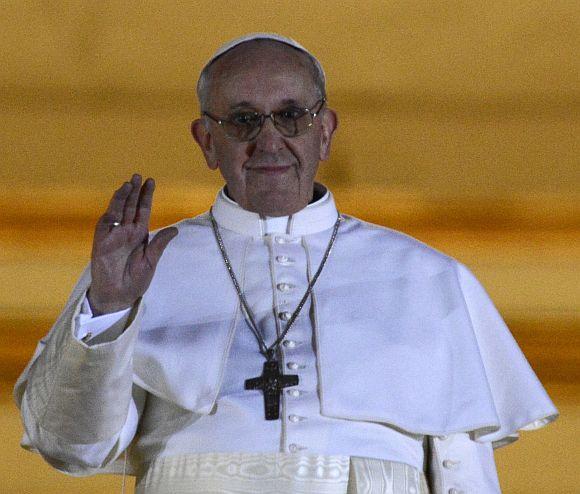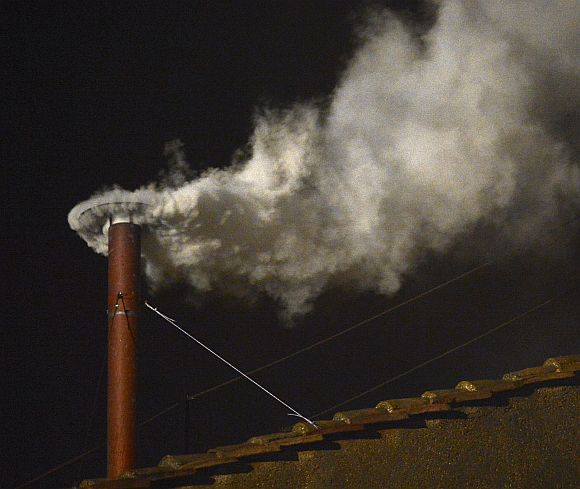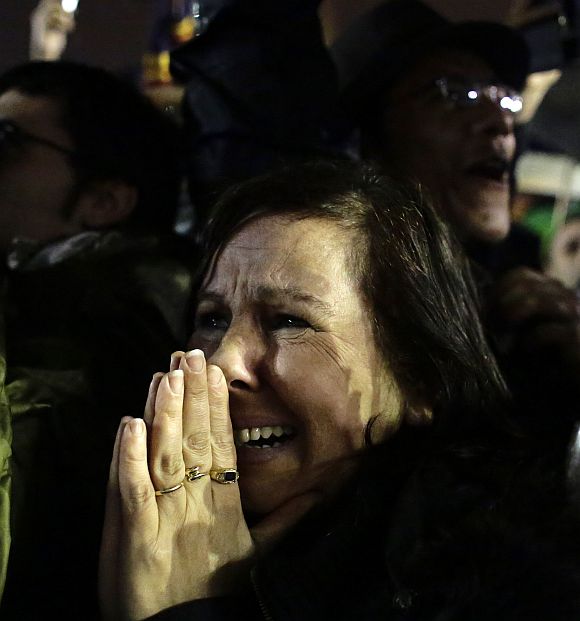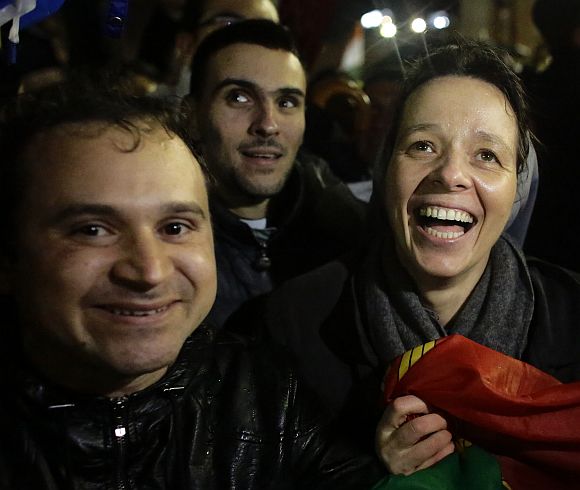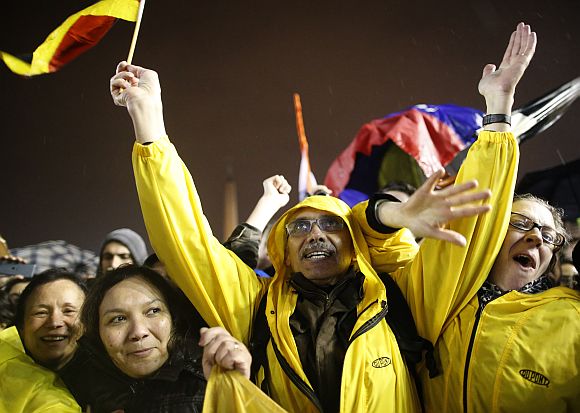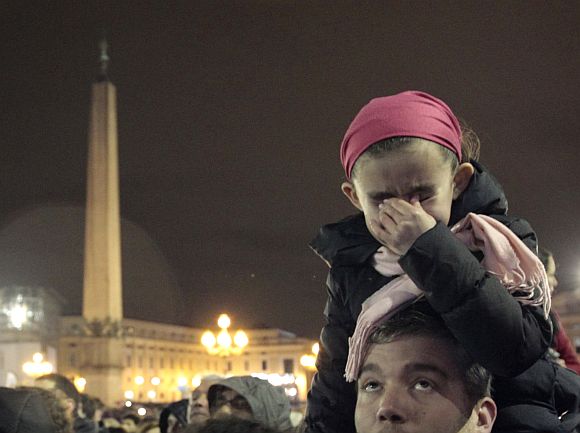 | « Back to article | Print this article |
Francis I of Argentina is new Pope
Argentine Cardinal Jorge Maria Bergoglio, 76, has been elected as the 266th Pope. He soon after assumed the name Francis I.
The election March 13 came on the second day of voting, on the fifth ballot. It was a surprisingly quick conclusion to a conclave that began with many plausible candidates and no clear favourite.
His election was announced in Latin from the balcony of St Peter's Basilica to a massive crowd under the rain in the square below, and to millions watching around the world.
Francis I is the first Jesuit Pope in history. The Jesuits are a Roman Catholic order founded by Saint Ignatius of Loyola in 1534 to defend Catholicism against the Reformation and to do missionary work among the heathen; it is strongly committed to education and scholarship
Dressed in white papal vestments, Bergogolio first appeared to the world from the balcony of St Peter's Basilica.
Click on NEXT to see more PHOTOS...
Francis I of Argentina is new Pope
"As you know, the duty of the conclave was to appoint a bishop of Rome," he told a cheering crowd of thousands packed into St. Peter's Square.
"It seems to me that my brother cardinals have chosed one who is from far away... Here I am. I would like to thank you for your embrace."
Earlier, white smoke poured from the Sistine Chapel chimney around midnight (India time), signaling that the cardinals had chosen a successor to retired Pope Benedict XVI.
Two minutes later, the bells of St Peter's Basilica began pealing to confirm the election.
French Cardinal Jean-Louis Tauran, the senior cardinal in the order of deacons, appeared at the basilica balcony and read out in Latin: "I announce to you a great joy: We have a pope! The most eminent and most reverend lord, Lord Jorge Maria, Cardinal of the Holy Roman Church, Bergoglio, who has taken for himself the name Francis."
Click on NEXT to read further...
Francis I of Argentina is new Pope
The crowd in the square responded with cheers, applause and the waving of rain-soaked national flags.
The new pope was selected after earlier ballots failed to produce a winner.
The 115 cardinal electors began the conclave on Tuesday following the resignation of Benedict XVI, the first pontiff to resign in 600 years.
At least a two-thirds majority -- 77 votes -- was required to elect the next pope.
The drama unfolded against the backdrop of the turmoil unleashed by Benedict's surprise resignation and the exposure of deep divisions among cardinals who grappled with whether they needed a manager to clean up the Vatican's dysfunctional bureaucracy or a pastor who can inspire Catholics at a time of waning faith and growing secularism.
Click on NEXT to read further...
Francis I of Argentina is new Pope
News agency Reuters reported that the last four popes were all elected within two or three days.
Seven ballots have been required on average over the last nine conclaves. Benedict was clear frontrunner in 2005 and elected after only four ballots.
The cardinals were shut inside for the secret election under Michelangelo's luminous frescos on Tuesday after a day of religious pomp and prayer to prepare for the task.
The initial inconclusive vote about two hours later was seen as a way of filtering the choice down to frontrunners for discussions among the supporters of the various candidates.
Click on NEXT to read further...
Francis I of Argentina is new Pope
No hint emerged before the pope was chosen. The Vatican had taken precautions, including electronic jamming devices, to prevent any leaks from inside the conclave.
The new pope will take up a burden that Benedict declared in February was beyond his physical capabilities.
Apart from an child abuse scandals and the "Vatileaks" case, the Church has been shaken by rivalry from other churches, the advance of secularism, especially in its European heartland, and problems in the running the Vatican bank.
The former head of the Archdiocese of Los Angeles, Cardinal Roger Mahony, is attending the conclave despite calls for him to stay away because of a sex abuse case that led to his censure by his successor Archbishop Jose Gomez in January. He was stripped of all public and administrative duties as punishment.
Click on NEXT to read further...
Francis I of Argentina is new Pope
According to the New York Times, the new pope will also inherit power struggles over the management of the Vatican bank, which must continue a process of meeting international transparency standards or risk being shut out of the mainstream international banking system.
In one of his final acts as pope, Benedict appointed a German aristocrat, Ernst von Freyberg, as the bank's new president.
He will have to help make the Vatican bureaucracy -- often seen as a hornet's nest of infighting Italians -- work more efficiently for the good of the church. After years in which Benedict and John Paul helped consolidate more power at the top, many liberal Catholics also hope that the next pope will also give local bishops' conferences more decision-making power to help respond to the needs of the faithful, the newspaper reported.
